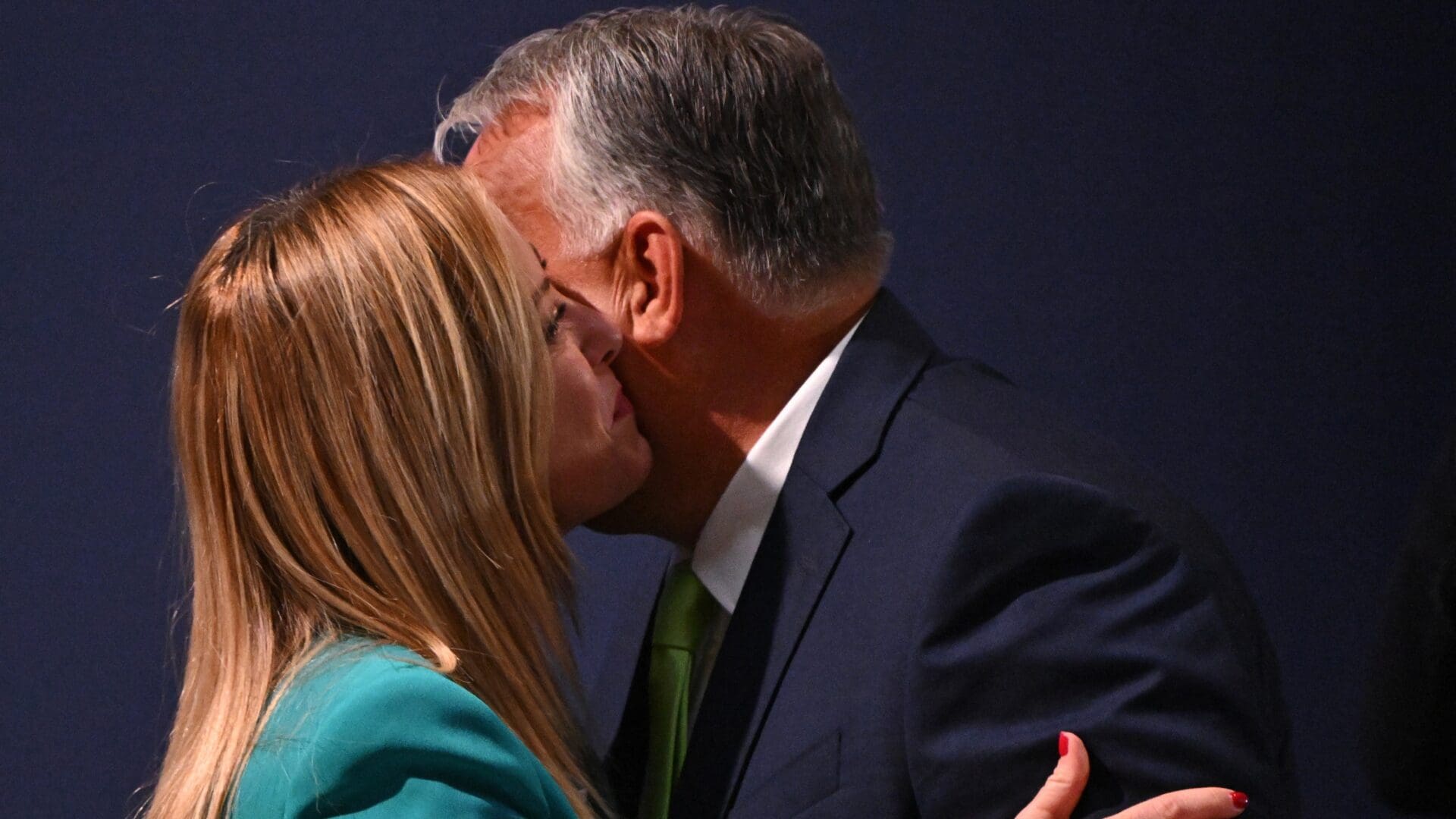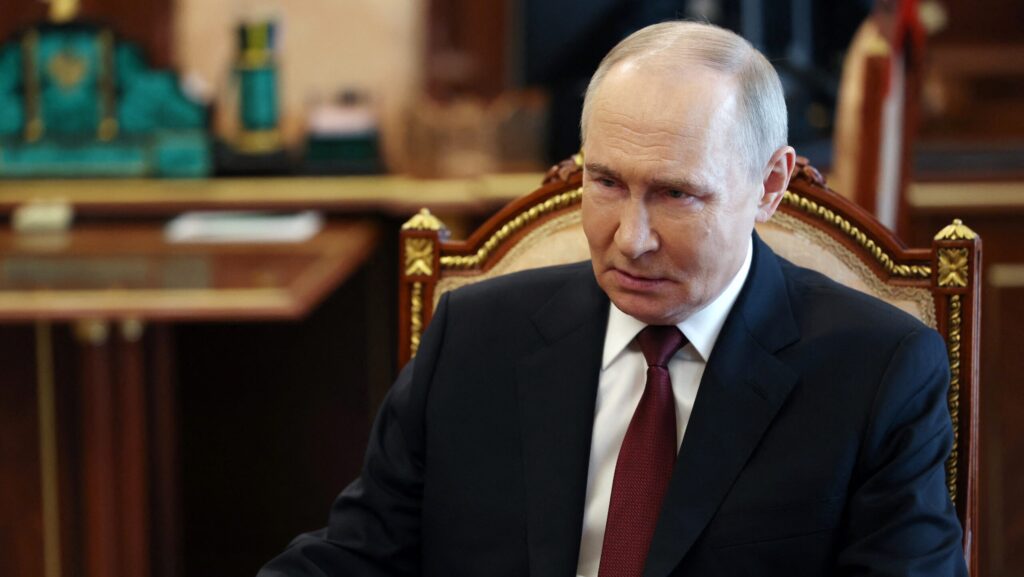Italian Prime Minister Giorgia Meloni is seeking to convince Hungarian Prime Minister Viktor Orbán to lift his opposition to the European Union’s support for Ukraine and to improve relations with President Volodymyr Zelenskyy, as reported by Bloomberg.
According to the US business portal, Meloni is presenting the Hungarian Prime Minister with a unique proposition in exchange for Kyiv’s support: if Orbán revises his stance, Fidesz could be welcomed into the European Conservatives and Reformists (ECR) European parliamentary political group, led by Meloni. Fidesz departed from the European People’s Party (EPP) in March 2021, and since then, its MEPs have been operating as independents in the parliament. In the 2019 EP elections, the Hungarian governing parties secured over 50 percent of the vote, winning 13 out of the 21 available seats.
Similar successes are anticipated this year, potentially providing a significant boost to the ECR, currently holding 62 seats, if Fidesz were to join its ranks.
According to Politico’s polling averages, the ECR is projected to secure 78 seats in the upcoming June elections, and with the inclusion of Fidesz seats, this number could rise to 91. This would position the Meloni-led right-wing force as the third-largest political group in the European Parliament. Joining a right-wing political force would also be advantageous for Fidesz, enabling it to better represent Hungary’s interests on the European stage. Additionally, 2024 might witness a right-wing resurgence in European politics, with right-wing parties leading in the polls across the continent.
At the European Council summit on December 14–15 last year, Viktor Orbán stood as the sole EU leader opposing the allocation of €50 billion in EU aid intended for Kyiv over the next four years. Orbán insisted that financial support to Ukraine should not be sourced from the EU budget. The Prime Minister firmly stated, 'Hungary does not wish to participate in collective borrowing and assume debt jointly with other countries.’
Politico recently published an article citing EU sources indicating that Hungary might reconsider its veto on the aid to Ukraine.
However, this reconsideration would only occur if the funding is not pre-agreed for four years but rather subject to annual renegotiation and unanimous decision by EU leaders each year. Politico interprets this as an opportunity for Viktor Orbán to potentially exert continued influence or 'blackmail' Brussels in the coming years.
’It’s good to see that the European Commission is preparing a plan B for the 1st of February, according to which financial support given to Ukraine could be managed outside the EU-budget. This is a good decision! The Commission’s plan B is the Hungarian plan A!,' PM Orbán wrote in a post on the social media platform X (formerly known as Twitter).
It’s good to see that the @EU_Commission is preparing a plan B for the 1st of February, according to which financial support given to #Ukraine could be managed outside the EU-budget. This is a good decision! The Commission’s plan B is the Hungarian plan A!
— Orbán Viktor (@PM_ViktorOrban) January 9, 2024
Ukrainian aid will be a crucial topic at the upcoming European Council summit on 1 February.
Should the Hungarian veto persist, the European Commission and Member States will need to devise an alternative plan. As reported in a previous Financial Times article, work on Plan B has already commenced. Under this plan, the Commission could secure up to €20 billion in loans on the open market for Kyiv next year, facilitated by participating Member States offering guarantees to the EU budget. In this scenario, the decision would not require unanimity.
It is a matter of life and death for Ukraine to secure foreign financial support this year.
Kyiv faces a significant budget deficit in 2024, amounting to nearly $44 billion. EU support becomes crucial, especially as US financial assistance is becoming uncertain. While US lawmakers are slowly returning to Washington to decide on further funding for Kyiv, strong opposition from Republicans raises doubts about reaching a consensus. The gravity of the situation is emphasized by the recent UN announcement, indicating a request for $3.1 billion from various donors to support the war-torn country.
Meanwhile, opinions on the conclusion of the war are divided. Italian Defence Minister Guido Crosetto recently emphasized the need to bring the parties to the negotiating table promptly, asserting that the military realities make it challenging for Ukraine to win the war. Press reports suggest that the Biden admin is shifting its strategy on Ukraine, with victory no longer being a top priority for Washington. Despite this shift, some Western countries have pledged additional arms and increased financial support.








